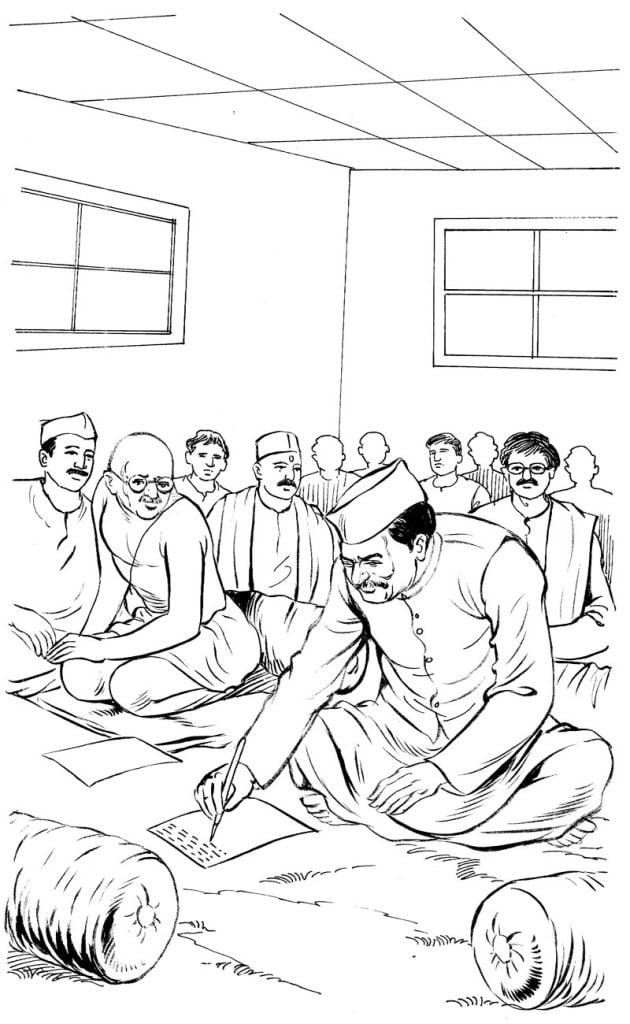Civil Disobedience formula got huge success in Champaran. Natives were well known by the perfection of Civil Disobedience in South Africa.
When Rawlett Act was imposed in 1920, then too it was decided to oppose it by means of Civil Disobedience. But before starting the agitation Gandhiji decided to travel entire country. For and for his journey he selected some persons from each state. Gandhiji had a peculiar capacity to identify a right person.
The persons selected by him later became the leaders of the country.
The leaders selected by him were—
Chittaranjan Dass from Bengal
Rajgopalachari from Madras
Vallabh Bahi Patel from Gujarat
Jawahar Lal Nehru Uttar from Pradesh
Rajendra Prasad from Bihar
They were Bapu’s commanders in the war of Civil Disobedience. Before commencing the Civil Disobedience Movement Gandhiji had formed a committee. The committee members had to sign on a bond. Babu Rajendra Prasad was also a member of this committee.
Rajendra Babu showed such a devotion in letting out the message of Gandhiji to the natives of Bihar that people started calling him Gandhi of Bihar.
British Government appoints a committee to suppress political upsurge in India. Justice A.S.I. Rawlett was its President. The four other members of the commitee were—Basal Scot Chief Justice of Mumbai high court, Kumar Swami Shashtri justice of Madras high court, Barne Lavet member of Revenue Board of United Province (now Uttar Pradesh) and Parbhat Chandra Mishra, an advocate of Calcutta high court.
Two aims were signified for this committee—to obtain information about revolutionary activities and how to crush them.

Over the recommenderious of the committee entire country was in the grip of violent storm.
People were already in anger due to the breach of promise by British government. Infact British promised autonomy to India during first world war, but when war ended British govt. forgot his promise. It made a programme to implement the committee recommendations.
According to the recommendations of the committee—any person could be detained without any show cause notice.
Ergo, entire country stand united to oppose the Rawlett Act. Gandhiji wrote a article in ‘Young India’ through which the natives were invited to oppose this black law unitedly and to go on fast for one day on April 6, 1919. Beside it shops and traffic be suspended, meetings and processions be arranged and prayers be held at religious places.
This invitation of Gandhiji was carried out to every hook and corner of the country by the Congress volunteers. A letter was sent to Babu Rajendra Prasad in which he was asked to get signatures of concerned persons to observe non-violent Civil Disobedience against Rawlett Act. Rajendra Babu got signatures of several people on that.
His co-operation was admirable to fulfil the motive of Civil Disobedience in Bihar. In Patna Rajendra Babu played an important role for it. All were informed about strike.
On D-Day all shops were closed. No vechicular traffic—not even a cart was seen plying on the roads.

